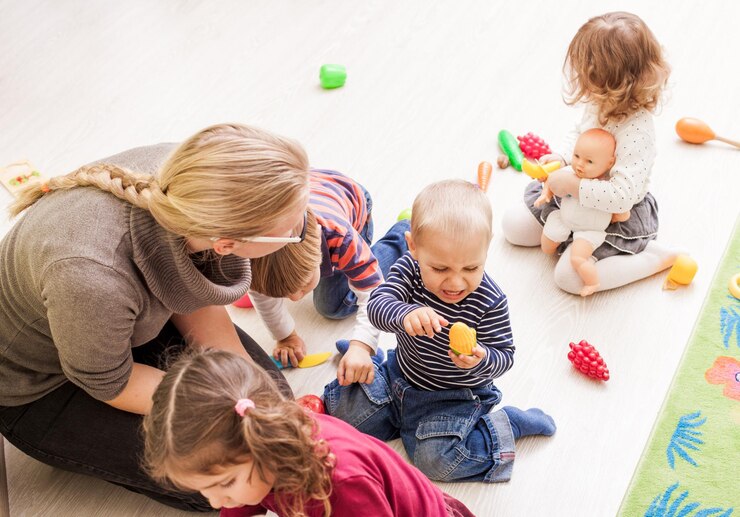
Early childhood education programs play a pivotal role in laying the foundation for a child’s lifelong learning journey. These programs, designed for children from birth through age 8, encompass a range of educational activities and experiences that foster cognitive, social, emotional, and physical development. From structured preschool settings to informal home-based environments, childhood education programs provide essential learning opportunities that shape children’s growth and readiness for future academic and social success.
The Importance of Early Childhood Education
Cognitive Development
Childhood education programs stimulate cognitive development through interactive activities that encourage exploration and problem-solving. Activities such as storytelling, puzzles, and hands-on experiments enhance children’s critical thinking skills and curiosity about the world around them. These experiences lay the groundwork for future academic achievements by fostering a love for learning from an early age.
Social and Emotional Skills
Socialization is a key component of childhood education programs, where children learn to interact with peers and adults in a supportive environment. Through group play, collaborative projects, and guided discussions, children develop essential social skills such as communication, empathy, and cooperation. Moreover, early education settings provide opportunities for emotional expression and regulation, helping children build resilience and self-confidence.
Types of Early Childhood Education Programs
Preschools and Daycares
Preschools and daycares offer structured programs that combine play-based learning with structured activities designed to promote school readiness. These programs often focus on early literacy, numeracy skills, and socialization in a nurturing environment supervised by trained educators.
Home-Based Early Learning
Home-based childhood education programs, including parental involvement and community programs, provide learning opportunities within the familiar surroundings of home or local community centers. These programs emphasize parental engagement in their child’s learning journey and often incorporate cultural and community-specific activities.
Benefits of Early Childhood Education Programs
Academic Readiness
Children who participate in quality early childhood education programs demonstrate higher levels of school readiness, including improved language development, literacy skills, and mathematical understanding. Early exposure to educational concepts sets a solid foundation for future academic success and lifelong learning.
Long-Term Societal Impact
Investing in childhood education programs yields long-term societal benefits, including reduced rates of school dropout, crime, and unemployment. Children who receive quality early education are more likely to contribute positively to their communities and achieve economic stability later in life.
Challenges and Innovations in Early Childhood Education
Addressing Accessibility
Ensuring equitable access to quality childhood education programs remains a challenge globally. Efforts to expand access through government-funded preschool initiatives, community partnerships, and outreach programs are essential to bridge the gap and provide all children with a strong educational start.
Integrating Technology
Innovations in childhood education include the integration of technology to enhance learning experiences. Educational apps, interactive digital games, and virtual learning platforms supplement traditional teaching methods, offering personalized learning experiences that cater to individual learning styles.
The Role of Educators and Parents
Educator Training and Support
Educators in childhood education programs play a crucial role in fostering children’s development and learning. Ongoing professional development and training ensure that educators are equipped with the knowledge and skills to create engaging and supportive learning environments.
Parental Engagement
Parents are integral partners in early childhood education, reinforcing learning at home and actively participating in their child’s educational journey. Parent-teacher partnerships facilitate open communication and collaboration, ensuring continuity between home and school environments.
Conclusion
childhood education programs are more than just a preparatory phase; they are the cornerstone of a child’s future success and well-being. By nurturing cognitive, social, and emotional development, these programs empower children to reach their full potential and become lifelong learners. As we continue to prioritize childhood education, investing in quality programs and supportive environments remains paramount to building a brighter future for generations to come.
